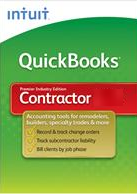Here are some of the primary challenges you (or most small construction business owners) face when estimating and submitting bids:
1. Inaccurate Cost Estimates
Estimating costs accurately is one of the most significant hurdles. Accurately pricing materials, labor, and overhead can be complex, especially in fluctuating markets. You may also lack access to comprehensive data or historical project information, leading to potential underbidding or overbidding. Both scenarios can have adverse effects—underbidding can result in losses while overbidding might drive clients to competitors.
2. Limited Resources
Many small construction businesses operate with limited resources, challenging the bidding process. You may not have dedicated staff to handle estimates and bids, increasing workloads for you and your existing employees. If bids are not well-prepared, this can lead to rushed estimates, higher chances of error, and ultimately, lost opportunities.
3. Competition with Larger Firms
You often compete with larger firms that can leverage economies of scale to provide lower bids due to their established supply chains and resources. These larger companies may also have more significant marketing budgets and brand recognition, making it difficult to stand out despite offering superior quality or personalized service.
4. Time Constraints
The bidding process can be time-consuming, and you often juggle multiple responsibilities, including project management, client communications, and on-site work. As deadlines approach, there's pressure to submit bids quickly, which can lead to less thorough estimates and oversights. Balancing time constraints with the desire to create a comprehensive, well-researched bid can be a significant challenge.
5. Changing Regulations and Standards
The construction industry is subject to various regulations and codes varying by location and project type. You must stay updated on these requirements, and failing to consider them in bids can lead to costly mistakes later. Navigating these regulations while preparing estimates adds another layer of complexity and can be daunting for businesses with limited experience in regulatory compliance.
6. Market Volatility
The construction industry can be impacted by market volatility, including fluctuating material costs, labor availability, and service demand. Small business owners must factor these uncertainties into their estimates, which can be difficult. Sudden increases in material prices or labor shortages can erode profit margins if not anticipated in the bidding process.
7. Client Expectations and Changes
Clients often have specific expectations and preferences that can change throughout the bidding process or even after the bid is submitted. Managing these expectations while preparing an accurate bid can be challenging. If clients request significant changes after the bid is submitted, it can complicate the scope of work and impact overall project costs and timelines.
8. Health and Safety Regulations
Compliance with health and safety regulations is critical in the construction industry. Small business owners must factor in potential costs to meet safety standards. This requires thorough knowledge of rules and can complicate cost estimates and bids, particularly for projects with stringent safety requirements.
Winning bids means new opportunities for income and growth, but negotiating effectively can be challenging. Here are some strategies to help you successfully navigate the bidding process and enhance your chances of securing contracts:
1. Understand the Project
Before starting the bidding process, take the time to understand the project requirements fully. Review the plans, specs, and any additional documents the client provides. If any details are unclear, ask the client or project manager questions. This knowledge helps you prepare a competitive bid and demonstrates your commitment to the project.
2. Do Your Homework
Research the client and their past projects. Understanding their preferences, standards, and feedback from past contractors can give you an edge. Additionally, analyze the market rates for similar projects in your area. This information will allow you to submit a competitive yet profitable bid.
3. Prepare a Detailed Bid
A well-structured bid should outline your approach, including timelines, costs, and resources. Be transparent about your pricing and ensure that your estimates cover all aspects of the project — from labor and materials to overhead and contingencies. Highlight your unique selling points, such as your experience, quality of work, or commitment to safety, to set your bid apart from competitors.
4. Build Relationships
Bidding isn't just about numbers; it's also about relationships. Take the time to develop rapport with potential clients and stakeholders. Attend pre-bid meetings, engage in conversations, and express genuine interest in their goals. A positive relationship can improve trust and influence their decision when selecting a contractor.
5. Be Flexible and Open to Negotiation
Once bids are turned in, be prepared for negotiation. Clients may have concerns or budget constraints that require adjustments to your initial proposal. Approach these discussions with flexibility. Consider offering alternative solutions or revised pricing structures that can help meet the client's needs while protecting your margins.
6. Highlight Your Value
During negotiations, focus on your value, not just the cost. Discuss the quality of materials, your construction methods, and your team's expertise. If you have previous work that showcases your successes or testimonials from satisfied clients, use these as evidence of your reliability and skill.
7. Document Everything
Once negotiations reach a satisfactory conclusion, ensure that all agreements are documented. Clear contracts outlining the scope, cost, deadlines, and expectations protect both parties and serve as a reference point throughout the project. It helps prevent misunderstandings and can be vital if disputes arise during construction.
8. Follow Up
After submitting a bid, if you don't hear back within a reasonable time frame, don't hesitate to follow up. A polite inquiry shows your continued interest and engagement. If your bid was unsuccessful, asking for feedback can provide valuable insights for future submissions.
Final thoughts
For small construction businesses, the bidding process is often a double-edged sword. While it presents opportunities for growth and profit, it also comes with numerous challenges that can be daunting. Accurately estimating costs and creating competitive bids is a skill that can take years to develop, and the complexity of each project can make the process even more demanding.
Practical accounting and bookkeeping play a vital role in streamlining the process of estimating and submitting bids. Accurate financial management helps ensure your bids reflect project costs and enhance overall business efficiency. We are here to help. Enlisting our services means access to correct reports and invaluable insights on pricing strategies, market conditions, and competitive analysis. This guidance can be instrumental in crafting compelling bids that meet client expectations and profitability goals.
Remember that each bid is an opportunity to learn and improve for the next. Stay persistent, and with time, your efforts will pay off through successful projects and business growth.

![]() Sharie DeHart, QPA, is the co-founder of Business Consulting And Accounting in Lynnwood, Washington. She is the leading expert in managing outsourced construction bookkeeping and accounting services companies and cash management accounting for small construction companies across the USA. She encourages Contractors and Construction Company Owners to stay current on their tax obligations and offers insights on managing the remaining cash flow to operate and grow their construction company sales and profits so they can put more money in the bank. Call 1-800-361-1770 or sharie@fasteasyaccounting.com
Sharie DeHart, QPA, is the co-founder of Business Consulting And Accounting in Lynnwood, Washington. She is the leading expert in managing outsourced construction bookkeeping and accounting services companies and cash management accounting for small construction companies across the USA. She encourages Contractors and Construction Company Owners to stay current on their tax obligations and offers insights on managing the remaining cash flow to operate and grow their construction company sales and profits so they can put more money in the bank. Call 1-800-361-1770 or sharie@fasteasyaccounting.com































